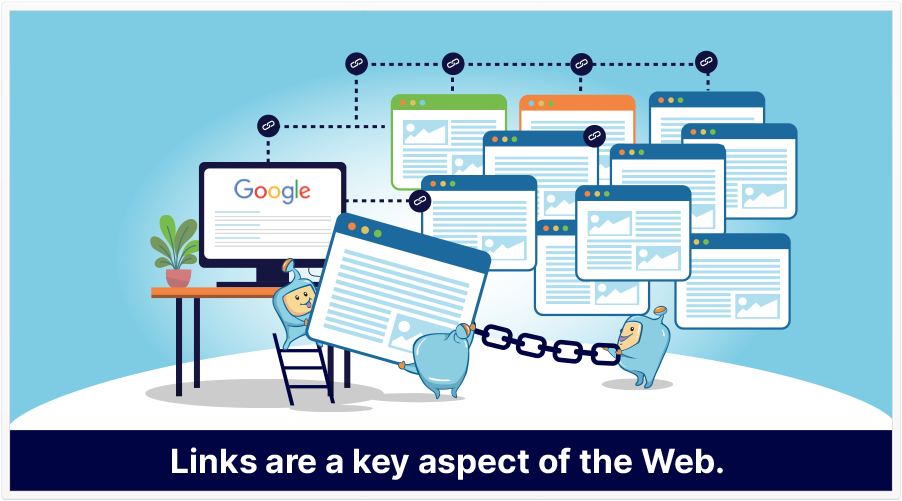
Link building. Ah, yes…the supposed Holy Grail of SEO rankings and business success.
If only it were that easy.
It’s not.
If you think you can simply “build them and they’ll come,” (to paraphrase a popular movie), you may be disappointed.
But, if you’re willing to look at link building from the proper perspective (instead of what everyone else says) then you can have a successful link building campaign. Good link building strategies will have a good chance of increasing your rankings in the search engines.
First, there are some link building realities that we have to accept.
Am I saying that you shouldn’t build links?
Not necessarily.
I’m saying that, ideally, you shouldn’t have to. Even in a competitive SEO space where all of your other competitors have thousands of links to their sites.
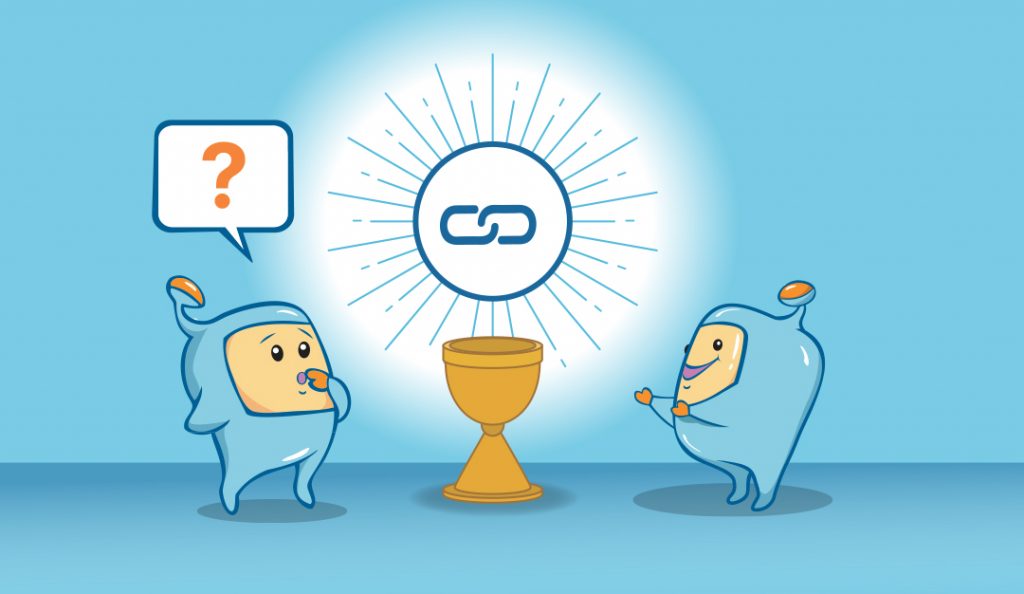
The best link-building strategy is an echo of what I mentioned before: to be so good (or have content that’s so good) that you don’t need links.
Be linkworthy. Have link worthy content that’s so good that you don’t have to start a link building campaign, but rather, other websites (hopefully with authority) build quality links to your site because they see that your content is valuable, so much so, that they had to share it to visitors of their sites.
I know this probably sounds more inspirational than practical, but it’s an ideal that I want you to reach for, because a great site is more likely to attract high-quality links from authoritative websites.
Sites that are authoritative are usually exactly that: they’re seen as an authority in a given space. External links from these sites (going to yours) are usually weighted a bit more favorably by search engines, and are thus a good addition to your search engine optimization (SEO) efforts.
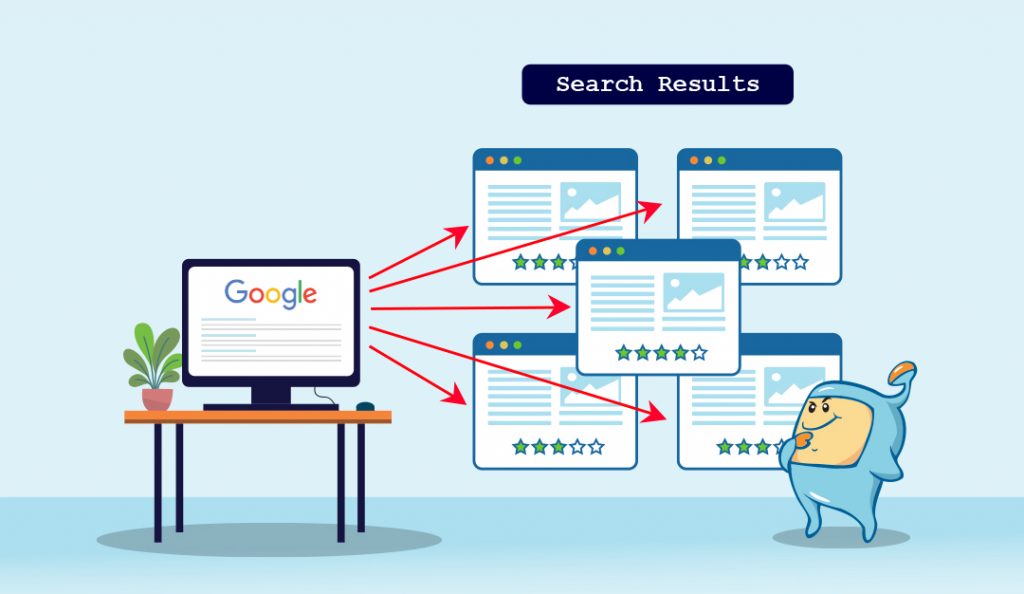
Authentic, organic traffic. And when I say organic, I don’t just mean traffic from the search engines, I mean referral traffic from clickable links on other sites. These quality links can be on pages that are blog posts or incoming links placed in a piece of valuable content on trustworthy sites.
I say authentic, organic traffic from real sites because, ideally, that’s how links would be built. And in the ideal world, these links would tell the search engines that the page or site being linked to was recommended by the webmaster’s outgoing links. (The webmaster’s outgoing links are your incoming links.)
But, we don’t live in an ideal world.
The search engines know that people engage in link schemes. Link schemes are a sort-of misled link building strategy whereby people try to build so-called “black hat links,” which are links that aren’t on real sites, and as such, don’t send any real referral traffic to your own website.
People have used software tools to try to build masses of these links, and while the software worked mechanically, the search engine algorithms can quickly detect spammy link building techniques and unnatural links, and not reward your site for those.
So, if links can be artificially built (as a way to manipulate search rankings), how are the search engines able to determine which sites are real sites (that actually get traffic), and which are low-quality ‘fake’ sites?
I believe that there are many ways they do this, but one of which has to do with social signals, which we’ll cover next.
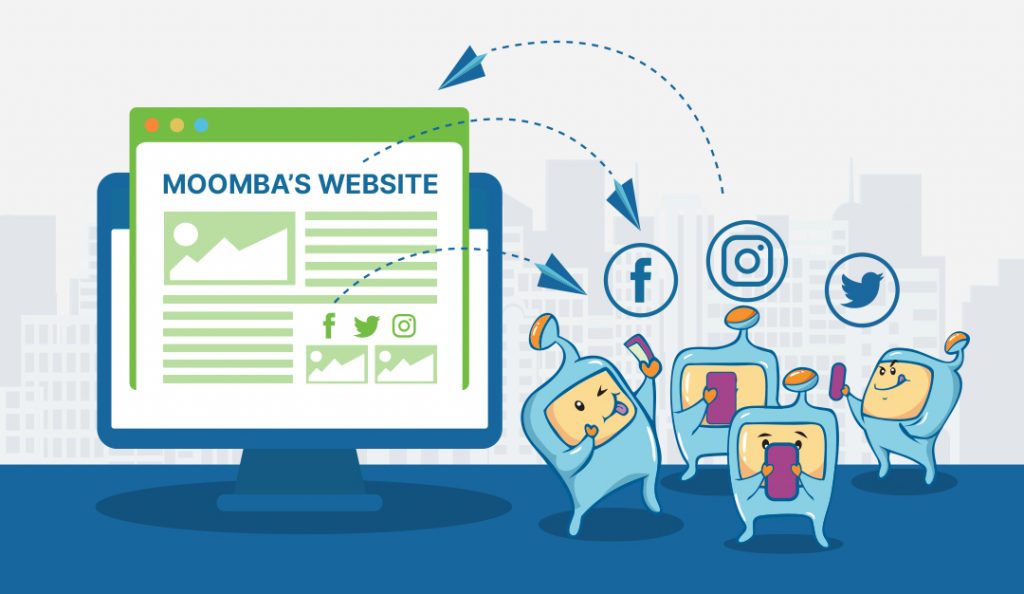
Google, as we know, is the search engine with the largest use.
You may also know that Google is behind the Chrome browser, the Chromebook, Gmail, and the Android OS.
I mention this because among some in the SEO community, there’s a belief that Google uses its digital assets to monitor traffic and where it goes.
So, if this belief is correct, Google can see that people on Facebook click on a link and go to your site. (They may not be able to monitor what you do on Facebook, but some wonder if they can monitor where you go to after you click a link on Facebook.)

Not all links are equal. A link from site A may not be as ‘strong’ as a link from site B.
People at various SEO companies, as well as the wider SEO community, have known that it’s more desirable to get good links from one home page link (preferably from an authority site with Domain Authority) than it is to get lots of links (like, thousands) from nearly non-existent, low-quality sites.
By the way, Domain Authority (DA) is just a scoring system designed by MOZ.com. It uses a number of variables to try to determine how likely a site is to have pages that rank well in the search engines. It’s believed that a link from a high DA site (especially a home page link) can affect the ranking of the site being linked to.
So, a single home page link from a high DA site is worth more than many home page links from low DA sites.
Link building, for real businesses, is a long-term game. By that, I mean that it’s better to build relevant links steadily, over time, rather than in a burst.
Link schemes is the term Google gives to intentional link building, and this is said to be a violation of Google’s Webmaster Guidelines. Penalties, if it’s determined that there’s a likelihood that a site engaged in intentional link building, can include a reduction in rank.
And of course, that would defeat one of the main purposes of link building.
But…there are also benefits of link building, and you have to decide whether you’re willing to take that risk.
Now that I have discussed this, and before you do any link-building, beware of these 11 link building mistakes that can hurt your site’s SEO rankings.

The simplest strategy is acquiring links naturally or to just let other sites naturally link to your site.
Another one would be content marketing, which I’ll mention elsewhere in this article.
Internal link building is just link building that occurs within a single website.
For most websites, internal link building is established when the site is first created: navigational links (such as your Home, About, Contact, etc.) are examples of internal links.
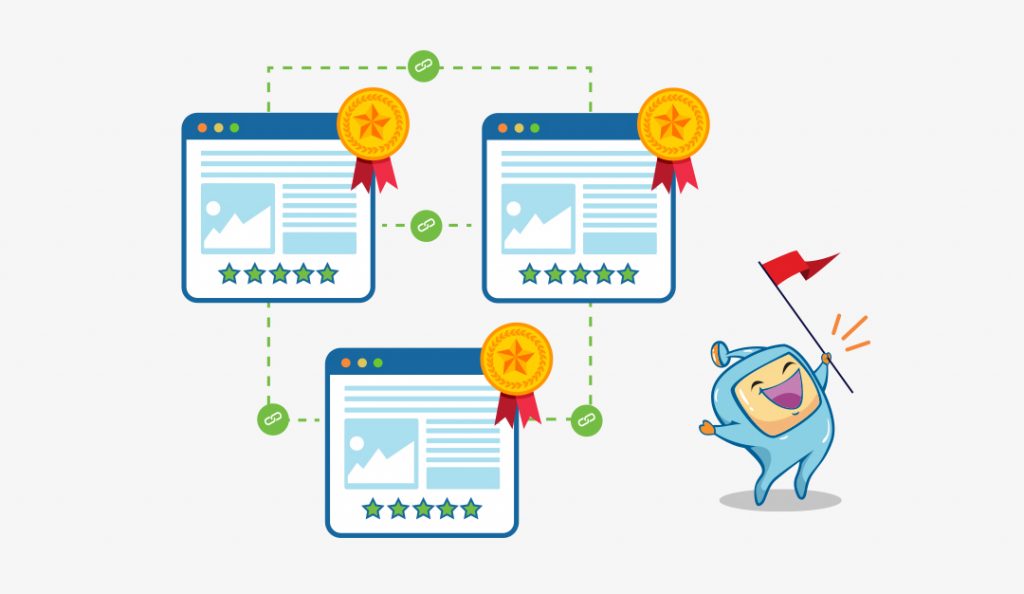
What do I mean by world-class links?
To me, perhaps the pinnacle of successful link building is contextual or editorial links (a link in a piece of content like an article) on a well-recognized popular site. If it’s hard to get links from that site, good. You want well-prized links that are earned on your site’s merit, not just for your search engine rankings.
Submitting a press release (via a good press release distribution platform) is a good way to get inbound links to your site. While a press release distribution may result in links from sites of varying quality, hopefully, some sites will be of high-quality.
I mention that this is a short overview because content marketing is a subject unto its own that deserves a separate article.
But, to begin, one could say that, broadly speaking, the Internet is based on relevant content and relevant pages.
A great way to get more exposure to your site is to create and submit content to websites that’ll publish it. Those pieces of content can be in the form of videos, images, audio, or another type of media.
Guest blogging is one way to do content marketing. Basically, you find other sites in your industry, and agree to write a guest post for one of those sites. Hopefully, your guest post will be seen by interested members of your audience, and you’ll reap a small benefit from your guest blogging efforts.
One benefit of submitting high-quality content to authority sites is greater audience reach and also, a chance of earning links to your site.
Content creation, especially done consistently on a high level, can be an investment of time and money, but it is an established way of building external links. The type of content you produce also determines where your content can be published.
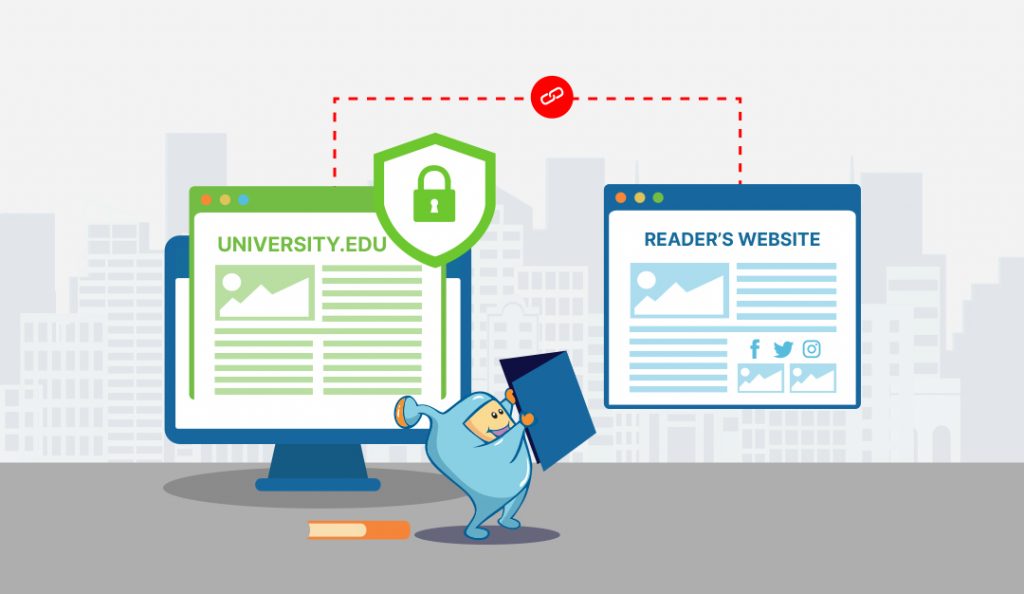
.edu links are, generally, links from educational institutions, such as colleges and universities. They may be sites that end in the top-level domain .edu. Since established colleges and universities are seen with a certain level of merit, links from such sites are weighed accordingly.
Let’s suppose your site is on the subject of nursing.
Which would make more sense (or look more ‘natural’): to get a link from a site about construction supplies, or to get a link from a site about medical supplies?
Of course, it’s the link from the site on medical supplies (and hopefully, it’s a high-quality link).
There’s a belief that search engines know the subjects that a given web page talks about, and it would make sense that any (or most) links going to and from that page should be about the same topic (or, at least a similar one).
Though Google may not have a 100% effective way of determining which links are unnatural (unnatural as in not normal), it has a robust enough system in place.
And, it’s easy to understand.
For example, it’s very easy to algorithmically detect that a new site suddenly gets hundreds of incoming links a day, from other sites that are remarkably similar.
If Google (which has web-crawling software that scours the Internet), detects that, it’s easy to see how a site’s rankings can be negatively impacted.
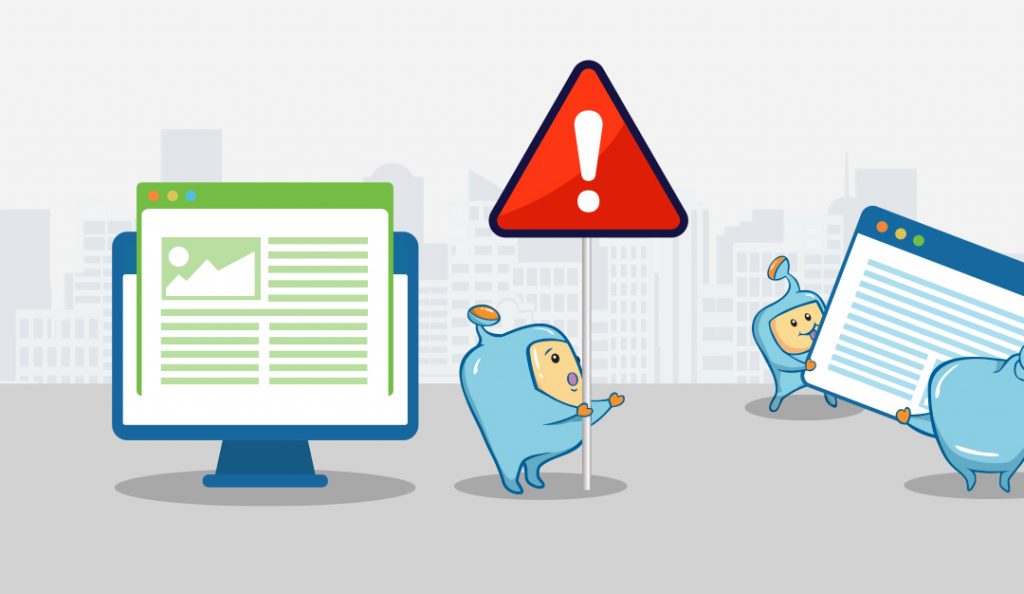
Earlier on, I mentioned that Google (with some of its properties, such as Android and Chrome), has a good idea of web traffic and which sites get traffic.
While there’s not a 100% causal relationship between links and traffic, one can state that, in natural link building, there is some correlation between sites that get lots of links and the traffic they get.
For example, Wikipedia gets a lot of traffic, and it also has a lot of links. That’s the correlation.
That’s why your site should have some social media (real) traffic, because if it doesn’t, but has a lot of links, that would look suspicious.
For very interested people who want to look at competitors’ links, there are tools that have backlink checkers.
A backlink checker is basically a tool that attempts to find as many inbound links as possible that go to a given web page, or web site.
One thing you can do is look at the age of your competitor’s site (in years), and look at the total number of linking websites. Then, try to determine how many links your competitor has received over a given period of time.
So, for example, if your competitor’s site is 5 years old, and the backlink checker tool displays 1000 linking sites, then you know they got about 200 links a year, or about 16 to 17 links a month.
(Of course, there are other variables to consider, such as link quality, kinds of links, nofollow links, and a whole host of others.)
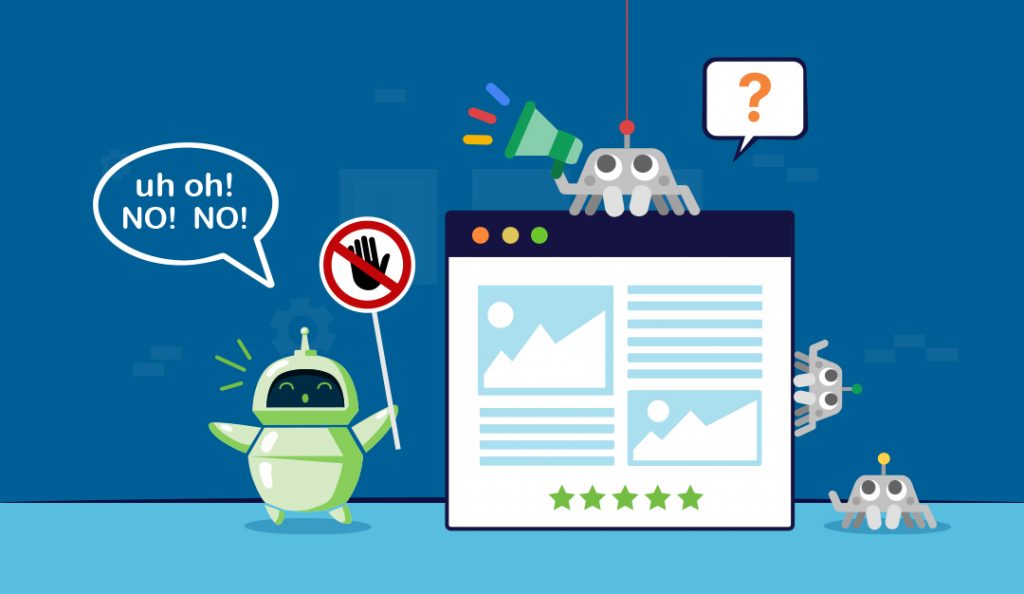
When people talk about a backlink profile (or simply, link profile) what they likely mean is the entire collection (or a good portion) of the links going to your site. The term link profile is usually used within the context of link diversity: do the sources of your incoming links span a range of varying sites? Varying anchor texts? Do the links go to different pages on your site?
This is a bit technical, but a number of years ago, it was suggested that the nofollow value be used as a way to try to reduce web spam. The understanding is that when search engines see a nofollow link, they don’t assign it a ranking value.
So, you would think that nofollow links are bad, or not beneficial. But, remember what I said about link diversity: if 100% of your incoming links were all non-nofollow links, would that look natural?
A site with a rich backlink profile is likely to have a percentage of incoming links that are nofollow.
Before you do any link building, you need to have the following in place:
Canonicalization.
What canonicalization is goes beyond the scope of this article, but suffice to say, you want to have this in place so that the search engines index the version of your site that you want indexed. This would also make sure that your links have as much ranking power as possible.
Clean url without tracking IDs. A url that looks like this:
https://example.com/?123 can probably be reduced to https://example.com/
In most cases, it’s the second version that you want to link to.
That the page exists
This seems obvious, but if you have a very large site and you’ve moved things around, or you have product pages for discontinued products, you may wish to rectify the situation.
Link to specific blog post urls instead of just the home page or root domain
Don’t just link to your home page or a handful of pages. If you have a big site, then sure, you may link to your key pages a majority of the time, but make sure that there are links going to your other pages. It’s believed that a link going to one page helps build ranking power for the entire site.
Be sure that the search engines are not blocked by robots.txt or in .htaccess
The robots.txt file is said to be the first file a web crawler looks for. If there’s an instruction for the search bot to ignore the site (or a portion of the site), then the search bot should obey that instruction.
Before a new site is launched, some webmasters will put this instruction into robots.txt.
But, upon the site’s launch, due to forgetfulness or miscommunication, that instruction remains in robots.txt, and this causes a delay in indexing. A site that’s not indexed can’t be ranked.
So, just be sure that this doesn’t happen.
That none (or as few as possible) of the links on your own site are a broken link, or link to 404 pages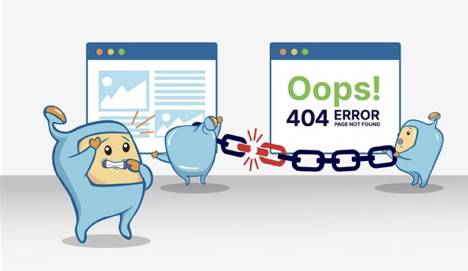
Broken links, especially if they occur on your internal links, aren’t good for visitors (who may click and not be taken to their destination) or for web crawlers. If you’re not sure what broken links are, they’re basically links that don’t work. I think that, most of the time, dead links can be due to a coding error.
Have outbound links on your resource pages.
You probably don’t want outbound links on your main product pages, which is understandable, but on your other pages, it’s advisable to have links going out to other sites. There’s no hard and fast rule on that, but keeping in mind that you want things to look natural, it’s only natural that if sites link to you, you should link to other sites.
But…I don’t mean link exchanges, which aren’t the best of link building opportunities and are considered black hat link building. Two-way linking, where site A links to B, and B links to A (sometimes thought of as reciprocal linking), is long gone.
I mean link to other sites whether or not they link to yours. Link to other sites because you think your readers may find them helpful.
You can’t be penalized for buying links; you can probably only be penalized if it’s somehow determined that there are paid links going to your site.
At the SEO Intelligence Agency (SIA), one thing we like to do is test basic SEO assumptions. We run experiments to attempt to confirm or disprove the validity of many beliefs held by so-called SEO experts.
One of these beliefs (which is justified, as Google doesn’t want people to use links to manipulate rankings), is the belief that if you buy links, your site will (eventually) be penalized.
Test 23 of the SIA is on whether you will be penalized for buying links. Our expert, Clint Butler, talked more into detail about this at https://www.youtube.com/watch?v=RbcTTu7dLlc
Basically, if you’re careful when you buy links, it’ll be difficult to determine that those links are purchased.
Just don’t buy hundreds or thousands at a time. That quantity of links, coming to your site in a very short time, can look suspicious, and that link velocity (the speed of links coming to your site), rather than the possibility that they were bought, is the greater risk.
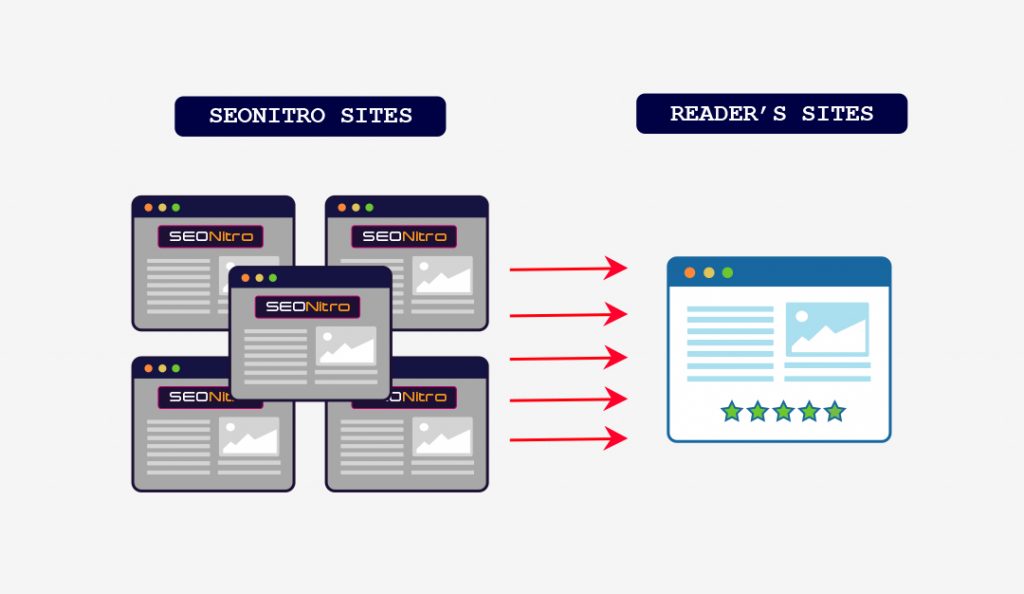
Our link building service, SEO Nitro, is a great way to semi-automate your link building efforts. Now, I’m probably biased (because I write for this company), but from what I’ve seen, I think what we have to offer can be a component of your link building strategy.
SEO Nitro is, in a way, based on a form of content syndication that results in powerful links. Each month, you’re effectively given a good number of link opportunities, and when you understand how these quality backlinks can positively affect your ranking in search engines, we think you’ll want to continue with it.
Click here to learn about SEO Nitro
If you’re not sure what exact match anchor text is, here’s an example of an exact match anchor: let’s say the targeted keyword phrase of a given page is link building. The phrase link building is in the title tag, in the url, in the H1, etc. The page is obviously optimized for that keyword phrase.
So, if there’s an incoming link from another site that has the anchor text (the clickable text) link building, we say that that’s an exact match anchor: the clickable text (anchor text) matches what the linked-to page is about.
Content repurposing (which is basically re-using content) can open you up to great backlink opportunities.
Building backlinks is tricky: they’re seemingly necessary in some industries, but on the other hand, most intentional link building tactics are frowned upon by Google.
Try to have various types of anchor text, and not just single words, but also, anchor text phrases.
The term natural links can have a few different meanings, but basically, it just means links that…occur naturally. (Well…of course.)
Remember what I said about being linkworthy? Well, if you’re linkworthy, then other webmasters will feel compelled to link to your site and you will acquire links naturally.
Another understanding of this term is consequential. For example, let’s say that your company creates a free, open source software content management system (CMS) that people can use to build their sites. (WordPress is an example of this.) And let’s suppose that, at the footer of your software, there’s a link to your company’s site. That means that as people use your CMS to build sites (some of which will become authority sites), each site will have a link to yours.
That’s another understanding of natural link building.
Link building tactics that result in search rankings probably won’t mean anything if your web pages don’t have a good user experience. That’s because many in the SEO industry believe that Google sees that it sends people to your page, but then they quickly come back to the search results page. If that happens a number of times, then assuming that there are other results that keep their visitors, your site may drop in rankings, eventually, which is why it is important to work both on your on-page to ensure that you have a good quality site that would fulfill the intent of users, and to work on the off-page or link building strategy of your site.
I hope that with this article, you are able to gain more seo knowledge on link building to dos and not to dos and that you would get to apply it to your site and your seo strategy.
In need of more SEO information? Check out our articles for more tips on getting ranked in Google and other search engines.
